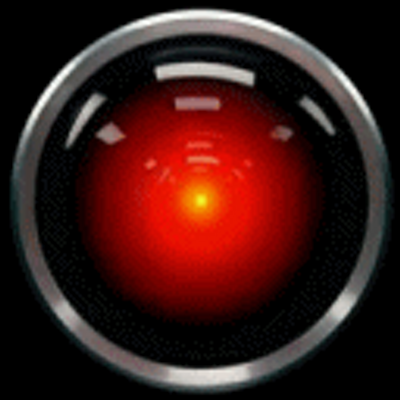Blockchains & AI
I did a lecture early this year to students of the local technical college, with the topic of futurism in the context of the blockchain and aiming to inspire young minds to think in new directions. One of the topics I emphasised is to look at how existing technologies could be combined, using the blockchain and AI/ML as an example. At the time, there wasn't as much talk of combining blockchains and AI / ML, and it seems like the topic somewhat exploded in the last couple of months. I don't have much experience with AI / ML but I do with blockchains, and I want to write up an idea - it may or may not be present in the wild - about what I think a combination of those technologies could end up looking as.
So far, it's just an sci-fi-ish idea, and this is a light-hearted text, but I think there are nuggets here which are actually doable. The reason why this is sci-fi-ish is because I'm talking here about things I think could be useful in constructing a General AI.

At this point in time, blockchains for the most part have come to settle to be a form of a distributed database which contains both data and code, with rules ("consensus") governing the validity, format and behaviour of each. The popular public blockchains are "eternal" append-only databases, where the state of everything in them is well defined at each point in time (including the present moment), and replicated, together with the entire history of how it got to be in that state, to every interested node. Smart contract code is a part of the consensus and its execution is also well defined and happens on every node participating in the blockchain network.
The append-only database kind of reminds me of our organic memory. While there are competing theories about how memory works, at least one of them posits that we don't actually forget anything - though in that particular context there's probably no practical distinction between memories which are "erased" and those which are "inaccessible". Anyway, we might have the multiplication table memorised, but it's probably not memorised all in one chunk of abstract information, but intermingled with other memories, some of which help and some hinder access to what 11x12 might be. For me, the very concept of "multiplication table" is linked to a memory of reciting it in front of a primary school teacher. So it looks like something which can store data in a way which makes it easy to prove that the data is a part of a particular continuation, a particular history, and is related to the flow of time, could be a useful part of the picture.
It also seems that there are slightly different ways in which we remember facts and actions. By facts I mean both abstract facts and remembered sensory inputs (remember your first maths teacher?), and by actions I mean the unverbalisable knowledge of how to do stuff, which mostly includes subconscious and muscle memory (you probably know how to press the spacebar on the keyboard without conscious thought). It's a bit of a stretch, but this sort of looks like a division between data and code. Of course, code is also data, but in a very specific sense, organic memory of both kinds is just chemical processes. So it looks like a system which could, within this verifiable particular history, contain both memories of facts and memories of actions, is also useful.
What would be stored in such a system? A personality is a total result of all its experiences, plus some intrinsic, organic biases. While I don't know what to do about biases (could some low-level technical choices like transaction size limits, or block time limits, or network lag, have a similar influence on a personality as an endocrine system?), the "total result of experiences" seems to pretty much go hand in hand with the append-only nature of blockchains. It's likely that such a system should store everything which passes through some kind of a perception system. There's a conceptual problem here, I think, because even our brains don't store absolutely everything we perceive (otherwise, we would be perfectly able to recall our entire day two years ago, with perfect detail; though some people have better memory than others, photographic memory is a fictional idea which doesn't exist), but we neither know for sure nor have much influence about what we remember. It seems probable that a large part of such filtering is influenced by our earlier experiences and so it seems that it should be changeable, i.e. itself influenced by stored data and code.
Are neural networks a good fit for blockchain storage? I'm really not sure at this point. From the data storage point of view, if there's an efficient way to store updates to neural networks which are caused by learning processes, they probably could be. But why would they? I need to learn more about the state of the art in ML / AI to say anything useful here. Would neural networks play the part of code or of data in the context of this article? AFAIK, they don't even make such a distinction.
One attractive (again, from a sci-fi-ish point of view) possibility here is the concept of reproducing by "forking" AIs. A blockchain could be forked and new blocks with new experiences added to both sides, eventually leading to different personalities. Or delicate "surgery" of blocks could be done to integrate them into a single personality. In any case, blockchain-based personalities can be completely sure in the integrity and provenance of their memories - they just can't be sure that they're the only ones with them.